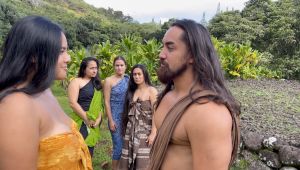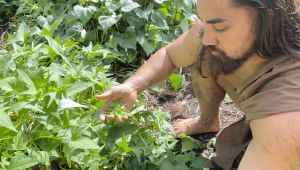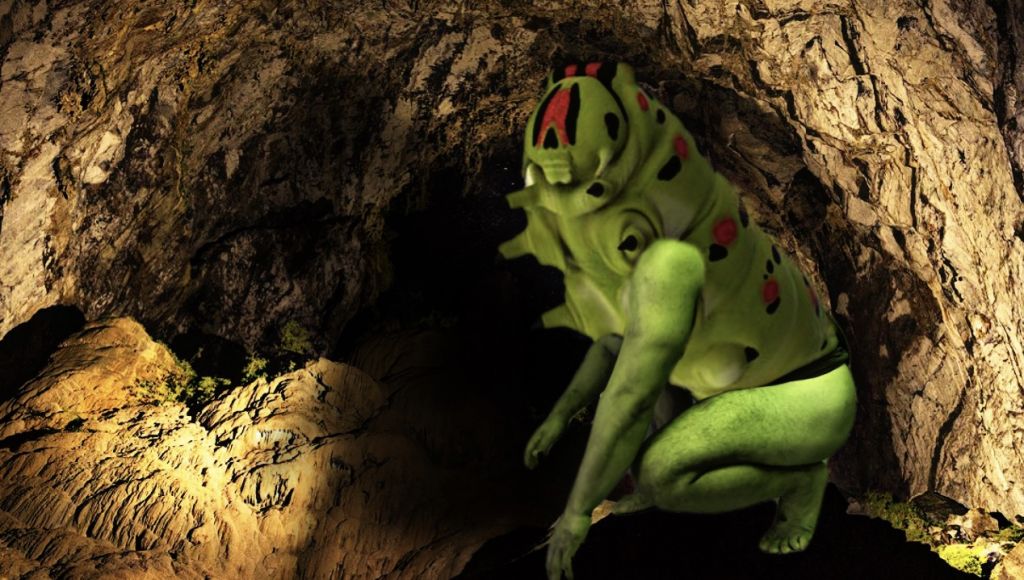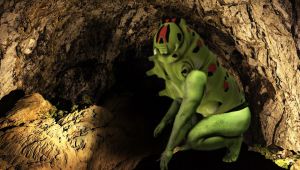Moʻolelo Monday
On the first Monday of the month a traditional or modern moʻolelo depicting the culture, values, language or traditions of Hawaiʻi, will be shared through a virtual platform. These mo‘olelo promote literacy within the classroom and home, and encourage ʻohana to read and learn together. Moʻolelo are shared by staff and guest storytellers.
MOʻOKALALEO
In the 1820’s, Kauikeaouli, Kamehameha III was the catalyst for the rise of literacy in Hawaiʻi. He stated, “ ʻO Koʻu Aupuni, he Aupuni palapala koʻu. My kingdom shall be a kingdom of literacy”. Within our moʻokalaleo, we share a literacy component that extends our moʻolelo journey.
Kumuhea
 takes the most beautiful woman of Kaʻū to be his wife. In Kaʻū, the beauty of a woman was determined on how momona or voluptuous she was, as it shows how well fed and nourished she was. This woman was cherished by the people of Kaʻū and so letting her marry Kumuhea wasnʻt easy but because she loved him, they gave their approval.
takes the most beautiful woman of Kaʻū to be his wife. In Kaʻū, the beauty of a woman was determined on how momona or voluptuous she was, as it shows how well fed and nourished she was. This woman was cherished by the people of Kaʻū and so letting her marry Kumuhea wasnʻt easy but because she loved him, they gave their approval.  in months. They noticed Kumuhea had quite a strange behavior as well, as he would only come out at night to gather lau ʻuala or sweet potato leaves and wouldnʻt linger long before retreating back to his cave. Kumuhea had been feeding his wife an exclusive diet of palula, cooked sweet potato leaves, his favorite meal. One night, the people of Kaʻū followed Kumuhea back to his cave. They were petrified as they watched Kumuhea enter his cave and transform into a giant ʻenuhe and when they saw the condition of his wife, who was once beautiful and momona, now malnourished and scrawny, they were enraged. The news spread like wildfire throughout the community and the people of Kaʻū marched to the cave and went into battle with Kumuhea. In thousands of pieces, Kumuhea was strewn across Puʻu ʻEnuhe. A wind of this area, Pakauakamakani, was named after the eerie whirring sound of this battle. Since then, a wondrous occurrence happens in Kaʻū where every so often a massive migration of ʻenuhe make their way from the mountain down to the ocean, eating all the greenery in their path along the way. Some kūpuna of this area believe once the ʻenuhe reach the ocean, they transform into other manifestations of Kumuheaʻs father, Kū, such as puhi and loli which are also prevalent in Kaʻū.
in months. They noticed Kumuhea had quite a strange behavior as well, as he would only come out at night to gather lau ʻuala or sweet potato leaves and wouldnʻt linger long before retreating back to his cave. Kumuhea had been feeding his wife an exclusive diet of palula, cooked sweet potato leaves, his favorite meal. One night, the people of Kaʻū followed Kumuhea back to his cave. They were petrified as they watched Kumuhea enter his cave and transform into a giant ʻenuhe and when they saw the condition of his wife, who was once beautiful and momona, now malnourished and scrawny, they were enraged. The news spread like wildfire throughout the community and the people of Kaʻū marched to the cave and went into battle with Kumuhea. In thousands of pieces, Kumuhea was strewn across Puʻu ʻEnuhe. A wind of this area, Pakauakamakani, was named after the eerie whirring sound of this battle. Since then, a wondrous occurrence happens in Kaʻū where every so often a massive migration of ʻenuhe make their way from the mountain down to the ocean, eating all the greenery in their path along the way. Some kūpuna of this area believe once the ʻenuhe reach the ocean, they transform into other manifestations of Kumuheaʻs father, Kū, such as puhi and loli which are also prevalent in Kaʻū. 
References:
The Polynesian Family System in Kāʻū
Hālau ʻŌhiʻa – Kaʻao Connections
https://www.facebook.com/halauohia/videos/ka%CA%BBao-konnections-october-29th/350189156204959/
Kumuhea
He keiki kāne a Kū i kapa ‘ia ‘o Kumuhea, he kupua ‘o ia i hānau ‘ia i ka hohonu o ka moana. Ua ho‘omaka ‘ia kēia mo‘olelo ma ka mokupuni ‘o Hawai‘i, ma ka moku o Ka‘ū. Ua kū ‘o Kumuhea i kona kino lau, he kanaka, a 
I hala ka manawa, e nīele nā kānaka i ka pilina o Kumuhea a me kāna wahine no ka mea, ‘a‘ole lākou e ‘ike i kāna wahine no kekahi mau mahina. Ua ‘ike nō ho‘i lākou i ka hana ‘ano ‘ē a Kumuhea e hana ana, ‘oiai, ua 
References:
The Polynesian Family System in Kāʻū
Hālau ʻŌhiʻa – Kaʻao Connections
https://www.facebook.com/halauohia/videos/ka%CA%BBao-konnections-october-29th/350189156204959/
Moʻo ʻŌlelo
Weekly, a Mo‘o ‘Ōlelo, a succession of Hawaiian words or phrases will be shared. The mana‘o behind each word or phrase relates to the mo‘olelo being presented. This component will enhance cultural awareness and knowledge through Hawaiian language.
ʻEnuhe and Loli are both kino lau (other forms) of Kumuhea.
ʻŌlelo Noeʻau # 1635
Kaupō ʻai loli.
Kaupō, land of the loli eaters.
Kauakahiakua, a chief of Kaupō, Maui, is said to have been fond of loli and to have once built a large imu for roasting them. Since that time the people of Kaupō have had a reputation for being especially fond of this sea creature.
He kupua ʻo Kumuhea. Kumuhea is a supernatural being.
Kupua
nvs. Demigod or culture hero, especially a supernatural being possessing several forms; one possessing mana; to possess kupua (magic) powers. Cf. kalakupua. Pōhaku kupua, stones with mana, as to cure sickness or prolong life. (PPN tupuʻa.)
(Source: Hawaiian Dictionary Pukui-Elbert)







